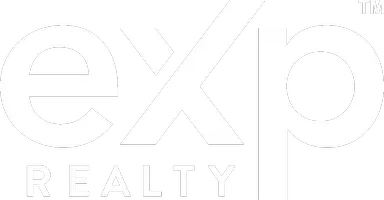Understanding Property Taxes for Vacation Home Buyers in Vermont
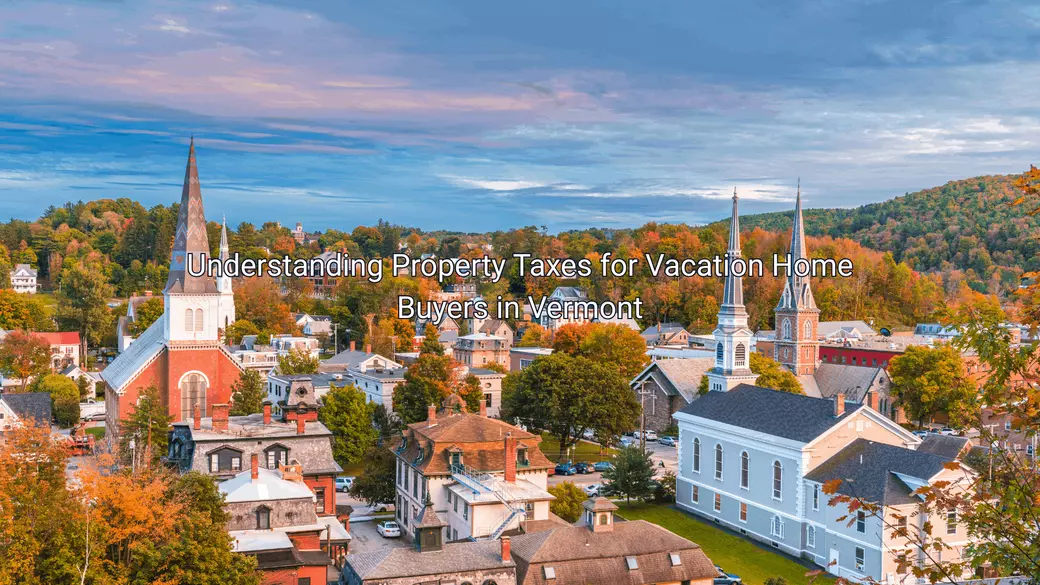
Purchasing a vacation home in Vermont offers the allure of scenic mountains, vibrant foliage, and year-round recreational opportunities. However, one critical financial aspect that prospective buyers must consider is property taxes. Vermont’s property tax system can be complex, especially for non-residents or those unfamiliar with the state’s tax structure. This article provides a comprehensive guide to understanding property taxes for vacation home buyers in Vermont, covering how they’re calculated, key considerations, and strategies to manage them.
How Property Taxes Work in VermontProperty taxes in Vermont are levied at the municipal level to fund local services such as schools, roads, public safety, and town government operations. These taxes are based on the assessed value of your property and the tax rate set by the town or city where the property is located. Here’s a breakdown of the key components:
- Assessed Value:
- The assessed value is determined by the town’s listers or a professional appraiser, typically based on the fair market value of the property (what it would sell for in an open market).
- Assessments are updated periodically, often every few years, through a process called reappraisal. During a reappraisal, property values may increase or decrease based on market trends, renovations, or other factors.
- Vermont uses a Common Level of Appraisal (CLA) to ensure fairness across municipalities. The CLA adjusts the assessed value to align with actual market values, as assessments can sometimes lag behind current market conditions.
- Tax Rates:
- Property tax rates in Vermont consist of two main components: the municipal tax rate and the education tax rate.
- Municipal Tax Rate: Set by the town or city to cover local services like fire departments, road maintenance, and libraries.
- Education Tax Rate: Funds Vermont’s public schools and is split into homestead and non-homestead rates (more on this below).
- Tax rates vary significantly by town. For example, in 2024, municipal tax rates ranged from about $0.50 to $2.00 per $100 of assessed value, while education tax rates added another $1.00 to $2.00 per $100, depending on the town and property type.
- Property tax rates in Vermont consist of two main components: the municipal tax rate and the education tax rate.
- Homestead vs. Non-Homestead Properties:
- Vermont distinguishes between homestead properties (primary residences of Vermont residents) and non-homestead properties (vacation homes, second homes, or rental properties).
- Vacation homes are typically classified as non-homestead, which are subject to a higher education tax rate. For example, in fiscal year 2024, the statewide average non-homestead education tax rate was approximately $1.51 per $100 of assessed value, compared to $1.39 for homestead properties.
- To qualify as a homestead, the property must be your primary residence, and you must file a Homestead Declaration annually by April 15. Vacation home buyers, especially non-residents, will not qualify for this designation.
- Calculating Your Property Tax Bill:
- The formula is: Property Tax = (Assessed Value ÷ 100) × (Municipal Tax Rate + Education Tax Rate).
- For example, if your vacation home in Killington has an assessed value of $400,000, a municipal tax rate of $0.65 per $100, and a non-homestead education tax rate of $1.51 per $100, your tax bill would be:
- ($400,000 ÷ 100) × ($0.65 + $1.51) = $4,000 × $2.16 = $8,640 annually.
- Higher Taxes for Non-Homestead Properties:
- As a vacation home buyer, your property will likely be classified as non-homestead, leading to a higher tax bill compared to primary residents. This is primarily due to the higher non-homestead education tax rate.
- Be sure to factor this into your budget when considering the affordability of a second home in Vermont.
- Variability by Town:
- Property tax rates vary widely across Vermont’s towns. Popular vacation destinations like Stowe, Killington, or Woodstock often have higher property values and tax rates due to demand and the cost of maintaining tourist-friendly infrastructure.
- For instance, in 2024, Killington’s combined tax rate (municipal + non-homestead education) was around $2.16 per $100, while a less tourist-driven town like Barre might have a lower rate, closer to $1.80 per $100.
- Research the specific town’s tax rates and recent reappraisal history before purchasing. You can find this information on the town’s website or through the Vermont Department of Taxes.
- Impact of Reappraisals:
- Vermont towns periodically reassess property values to reflect current market conditions. If you buy a vacation home in a hot market, a reappraisal could significantly increase your assessed value and, consequently, your tax bill.
- For example, Vermont’s real estate market saw significant appreciation in 2020–2023 due to demand for rural and vacation properties, leading to higher assessments in many towns.
- Additional Taxes and Fees:
- Some towns impose local option taxes (e.g., a 1% sales, rooms, or meals tax) that may indirectly affect vacation homeowners, especially if you rent out your property.
- If you plan to rent your vacation home (e.g., via Airbnb), you may need to collect and remit Vermont’s 9% Meals and Rooms Tax on short-term rentals (less than 30 days).
- Non-Resident Considerations:
- If you’re a non-resident of Vermont, you won’t qualify for homestead benefits or certain tax relief programs available to Vermont residents, such as the Property Tax Credit (which reduces taxes for low- to moderate-income residents).
- Non-residents may also face additional scrutiny during property transfers, as Vermont requires a Property Transfer Tax (1.25% of the property’s value for non-homestead properties, with exemptions for primary residences under $200,000).
- Appeal Your Assessment:
- If you believe your property’s assessed value is too high, you can appeal to the town’s board of listers or the state’s Property Valuation and Review Division. You’ll need evidence, such as comparable property sales or an independent appraisal, to support your case.
- The appeal process typically begins with a grievance hearing with the town, followed by an appeal to the state if necessary. Deadlines are strict, often within 14 days of receiving your assessment notice.
- Consider Energy Efficiency Improvements:
- Vermont offers property tax exemptions for certain renewable energy installations, such as solar panels. These exemptions can reduce your assessed value, lowering your tax bill.
- Check with your town’s listers to see if your improvements qualify.
- Explore Short-Term Rental Income:
- Renting out your vacation home when you’re not using it can help offset property taxes. However, ensure compliance with local zoning laws and state tax requirements, including registering for the Meals and Rooms Tax.
- Some towns, like Killington, have specific regulations for short-term rentals, so check local ordinances.
- Monitor Town Budgets and Tax Rates:
- Attend town meetings or review budget reports to understand how tax rates are set and what services they fund. This can help you anticipate future tax increases and advocate for balanced budgets.
- Work with a Local Expert:
- A local real estate agent, tax professional, or attorney familiar with Vermont’s property tax system can provide valuable insights. They can help you understand the tax implications of a specific property and guide you through appeals or exemptions.
- Vermont Department of Taxes: The state’s tax website (tax.vermont.gov) provides detailed information on property taxes, including current tax rates, homestead declarations, and appeal processes.
- Town Websites: Most Vermont towns publish tax rates, assessment data, and reappraisal schedules online. Contact the town clerk or listers for specific details.
- Vermont Property Transfer Tax Calculator: Available on the state’s tax website, this tool helps estimate transfer taxes due at closing.
- X Platform: Search for recent posts on X about Vermont property taxes or vacation home ownership for real-time insights from other buyers or locals. For example, searching “Vermont vacation home taxes” may yield discussions on local tax trends or experiences with specific towns.
Recent Posts

Land for Sale in Killington: Is Now the Time to Build Your Dream Mountain Home?
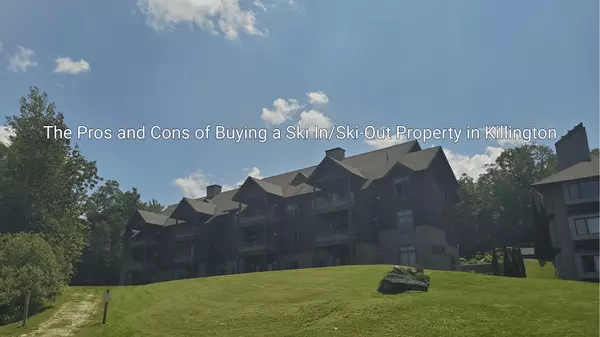
The Pros and Cons of Buying a Ski-In/Ski-Out Property in Killington
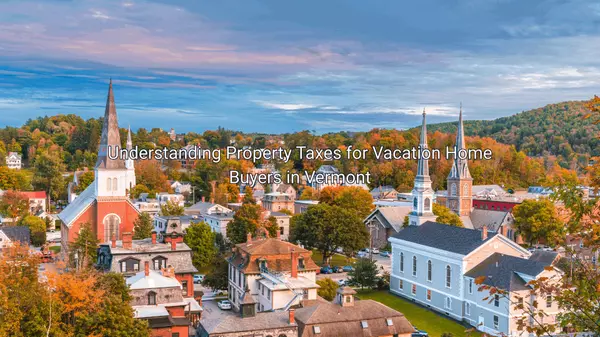
Understanding Property Taxes for Vacation Home Buyers in Vermont

Second Homes in the Green Mountains: Is Killington Right for You?
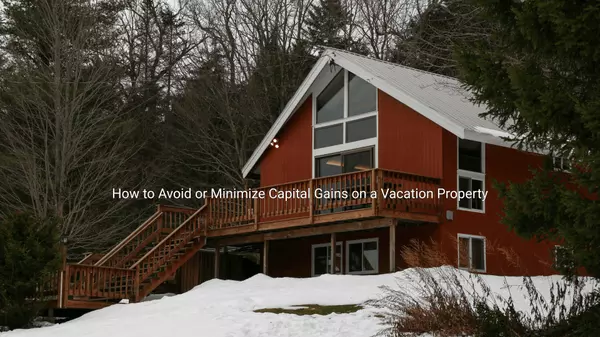
How to Avoid or Minimize Capital Gains on a Vacation Property
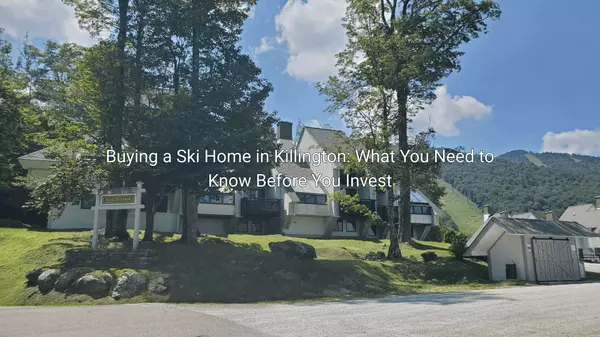
Buying a Ski Home in Killington: What You Need to Know Before You Invest
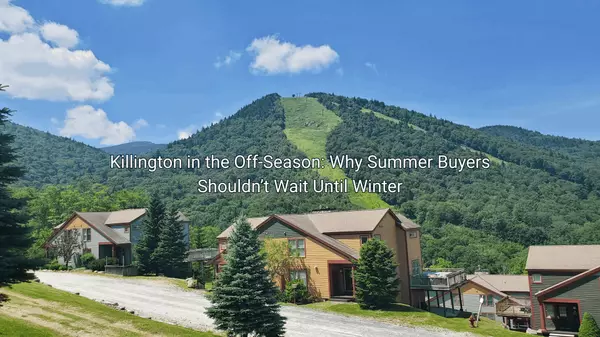
Killington in the Off-Season: Why Summer Buyers Shouldn’t Wait Until Winter
GET MORE INFORMATION

